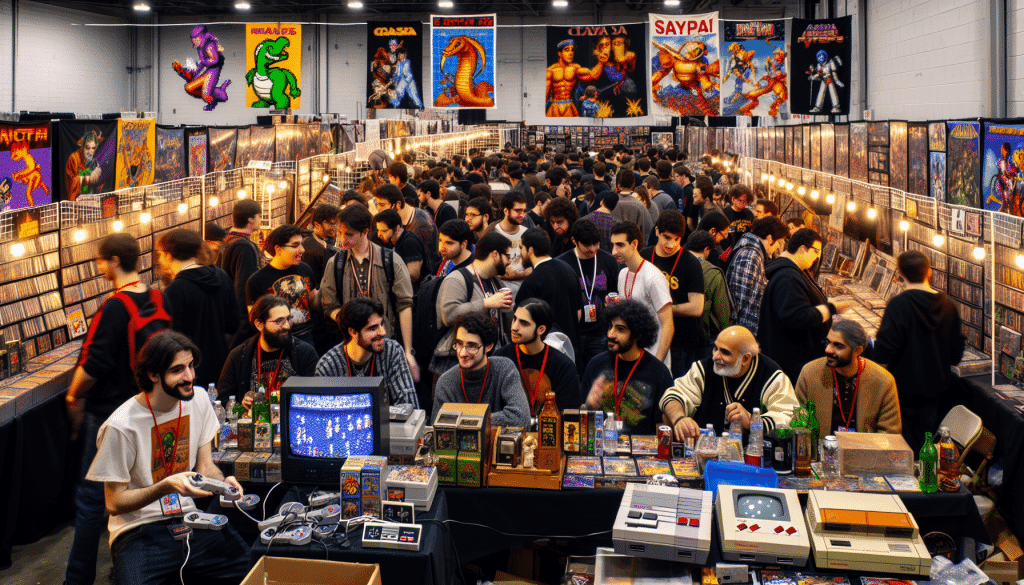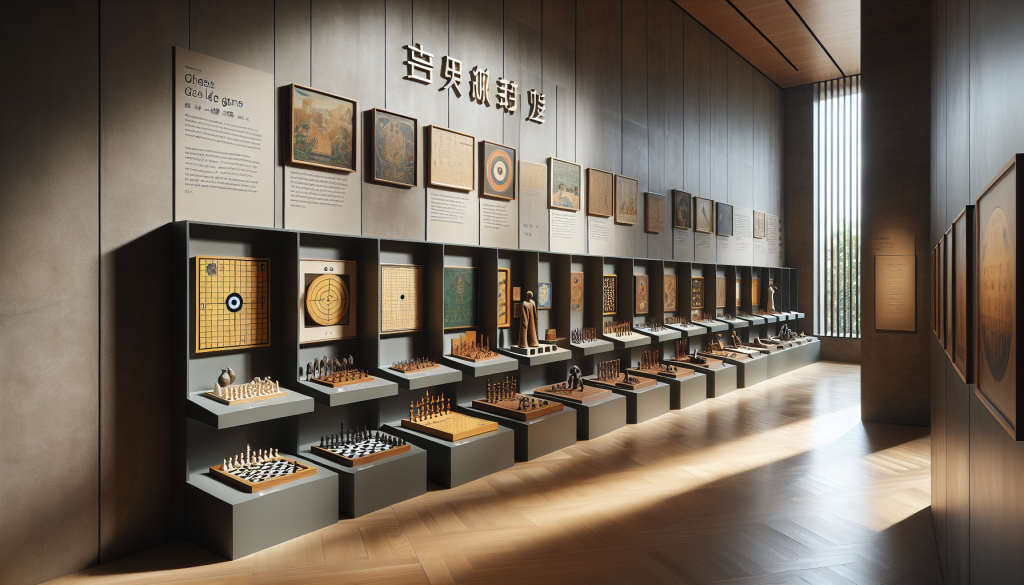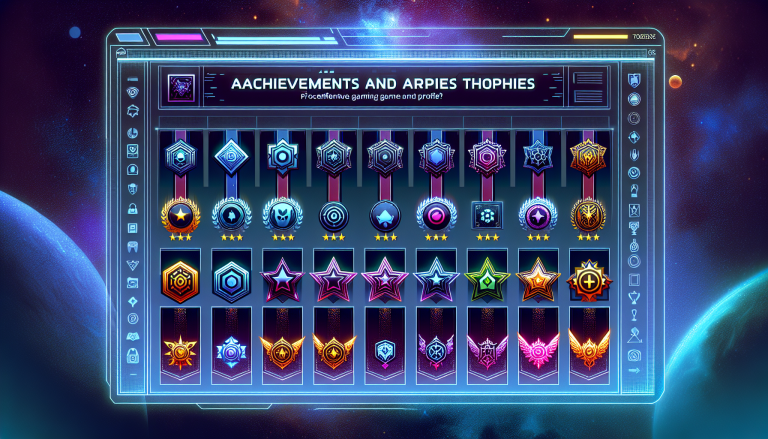The Influence of Culture on Game Development and Design
Have you ever wondered what makes a game truly captivating? Beyond the stunning graphics, exciting storylines, and thrilling gameplay, there’s another factor that significantly shapes the gaming experience – culture. Yes, you read it right! The influence of culture on game development and design is a fascinating subject that often gets overlooked. But today, we’re going to delve into it!
When we talk about culture in games, we’re referring to the unique characteristics, behaviors, values, and beliefs of a society that finds its way into a game’s story, characters, art, music, etc. The intertwining of culture and gaming is an art – it’s about crafting a game that isn’t just fun to play but also resonates with players on a deeper level!
Culture as a Focal Point in Game Design
Generally, culture has a massive influence on the conception and execution of a game. Coming up with an authentic, culturally rooted game is no mean feat – it requires a solid understanding of the culture being represented, along with a thoughtful and sensitive approach to its portrayal.
- Historical accuracy: This is a critical aspect when a game is rooted in a specific era or civilization. Gamers appreciate it when game developers invest time and effort into ensuring that the cultural elements, such as attire, architecture, language, etc., align with the historical period being depicted.
- Relatable characters: Characters in the game should reflect the cultural nuances of their fictional or real-world locations. They should talk, behave, and react according to their cultural norms. This detail enhances the gaming experience as players feel more connected and immersed in the game world.
- Storytelling: A game’s narrative is a potent tool for cultural expression. It can be used to explore cultural themes, traditions, and societal issues, making the game more engaging and impactful.
Creating a Global Appeal
While infusing culture into a game is vital, it’s equally important to strike a balance so that the game appeals to a global audience. This is where the concept of ‘culturalization’ comes in. It involves adapting a game’s content to accommodate different cultural perspectives and preferences, thereby making it more accessible and enjoyable for gamers worldwide.
“The key to successful culturalization is sensitivity and respect towards all cultures,” says Kate Edwards, a Geopolitical Strategist and a veteran in game design and development. “It’s not about eliminating the cultural essence, but rather about presenting it in a way that’s relatable to a diverse set of players.”
The role of culture in game development and design is indeed intriguing. It’s a testament to how games, like any form of art, are a reflection of the society they stem from. And the opportunity it provides for cultural exchange and global engagement makes it all the more exciting!
Cross-Cultural Gaming Experiences: A Comparative Analysis
As the world becomes more interconnected, so does our gaming experiences. It’s incredible how much we can learn about different cultures simply by picking up a controller or accessing a game on our smartphone. Let’s take a dive into the fascinating world of cross-cultural gaming experiences!
The East vs. West Divide
From a macro perspective, there’s an intriguing divide between Eastern and Western gaming culture. Games developed in Asia, particularly in Japan and South Korea, often emphasize teamwork, strategy, and long-term planning. These games, like the ultra-popular League of Legends or Pokemon, require players to think several steps ahead, mirroring the strategic nuances found in traditional Asian board games like Go or Shogi.
On the contrary, Western games, such as Grand Theft Auto or Call of Duty, often prioritize individual skill, fast-paced action, and immediate gratification. They’re a testament to the thrill-seeking and individualistic culture prevalent in the West.
Game Design: A Cultural Mirror
Game design often mirrors the culture where it originates. For instance, Japanese RPGs (Role-Playing Games) are known for their complex storylines, in-depth character development, and intricate world-building – all elements deeply rooted in Japan’s rich storytelling traditions. Conversely, American FPS (First-Person Shooter) games reflect the Western preference for action-packed, high-adrenaline narratives.
The Power of Localization
Localization plays a pivotal role in shaping cross-cultural gaming experiences. It’s not just about translating text; it’s about adapting a game to a specific culture. This means tweaking everything from character dialogues to food items to respect local sensibilities and traditions. When done well, localization can make a player feel like the game was made just for them, regardless of its original cultural context.
Influence of Gaming Communities
Gaming communities also contribute significantly to cross-cultural gaming experiences. Online platforms like Twitch and Discord allow gamers from different parts of the world to connect, discuss strategies, and share their experiences. This global camaraderie among gamers fosters a sense of global unity, bridging cultural gaps one game at a time.
Conclusion
As the gaming industry continues to evolve, so will our understanding and appreciation of different cultures. So, the next time you pick up a game from a different culture, take a moment to appreciate the nuances – they’re a gateway to understanding the world beyond our borders.
The Role of Gaming in Facilitating Global Understanding and Cultural Exchange
Today, we live in a world that is increasingly interconnected. At a time when global understanding is more important than ever, gaming has emerged as a powerful tool for cultural exchange and mutual respect. But how exactly does gaming break down barriers and bring cultures together? Let’s delve into it.
Breaking Down Stereotypes
Firstly, gaming provides a platform where stereotypes can be challenged and broken down. In a game, players can step into the shoes of characters from diverse backgrounds, races, and ethnicities, experiencing their stories first-hand. This can lead players to question and ultimately reject stereotypes they may have previously held.
Experiencing Different Cultures
Games can provide a virtual taste of different cultures. Whether it’s the bustling streets of Tokyo in “Yakuza”, or the ancient Norse mythology of “God of War”, players get a chance to immerse themselves in worlds far removed from their own. While it’s not the same as actual travel, it does offer a unique perspective on different cultures and ways of life.
Language Learning
Believe it or not, gaming can also be a great tool for language learning. Many games offer the option for subtitles and voice-overs in different languages, facilitating language acquisition in a fun and engaging way. Whether you’re battling demons in “DOOM” or catching Pokémon, you could just walk away with a few new phrases in a foreign language.
Creating Global Friendships
Perhaps most importantly, online gaming allows players from all over the world to connect and form friendships. Through cooperative gameplay, players must work together, promoting teamwork and mutual understanding. Regardless of nationality, race, or religion, gamers share a common language – the love for a shared virtual adventure.
Using Games For Cultural Exchange
Game developers themselves have a responsibility to use their platform for cultural exchange. By creating games that are sensitive to and respectful of a variety of cultures, they can foster global understanding and respect. It’s a big responsibility, but one that can have a tremendous impact on how we view the world and each other.
So, whether you’re a casual player or a hardcore gamer, remember that gaming can be more than just a hobby. It can be a window to the world, an opportunity to learn, and a way to make friends across the globe. Happy gaming!
Case Studies: Successful Cross-Cultural Games and Their Global Impact
Let’s dive into some thrilling examples of how gaming has managed to cross borders and cultures, creating a unifying and interactive experience for players worldwide. These case studies showcase successful cross-cultural game development and design, and the significant global impact they’ve had.
Pokémon GO
Developed by Niantic, Pokémon GO took the world by storm in 2016. Its use of augmented reality (AR) technology to blend the digital world of Pokémon with real-world surroundings was a game-changer, literally. However, it’s the game’s cultural inclusivity that helped it achieve its global success. Pokémon GO had trainers (players) from diverse cultural backgrounds, interacting and bonding over shared goals and experiences.
Minecraft
Next up is Minecraft, developed by Mojang Studios. What sets Minecraft apart is its simplicity and flexibility. It’s a sandbox game, essentially a virtual playground, where players can create and explore their own worlds. This universal concept of creation and exploration transcends cultural boundaries, making the game a global phenomenon.
The Legend of Zelda: Breath of the Wild
The third case in point is The Legend of Zelda: Breath of the Wild, developed by Nintendo. This game beautifully combines elements of Western and Japanese cultures. The narrative and design elements taken from Japanese mythology co-exist seamlessly with Western-style open-world exploration. This blend of cultural elements contributed significantly to the game’s worldwide appeal and success.
Final Fantasy Series
Finally, we have the Final Fantasy series, developed by Square Enix. This franchise has been enthralling gamers since the late ’80s with its mix of western medieval aesthetics, Japanese storytelling, and universally relatable themes like friendship, love, and sacrifice. It’s a shining example of cross-cultural design that resonates with gamers from different cultural backgrounds.
These games serve as enlightening case studies of how cross-cultural game development is not only possible but also remarkably rewarding in terms of global reach and impact. They remind us that gaming is a universal language capable of transcending cultural barriers, fostering global understanding, and facilitating cultural exchange.












